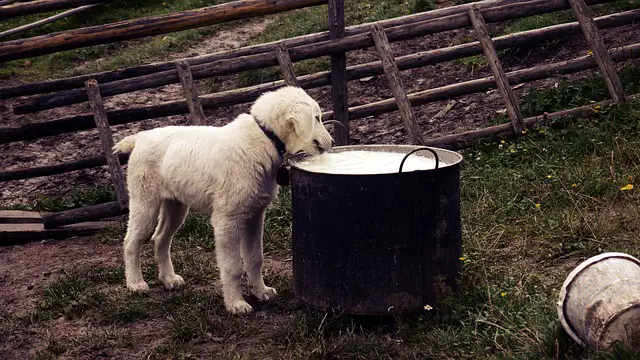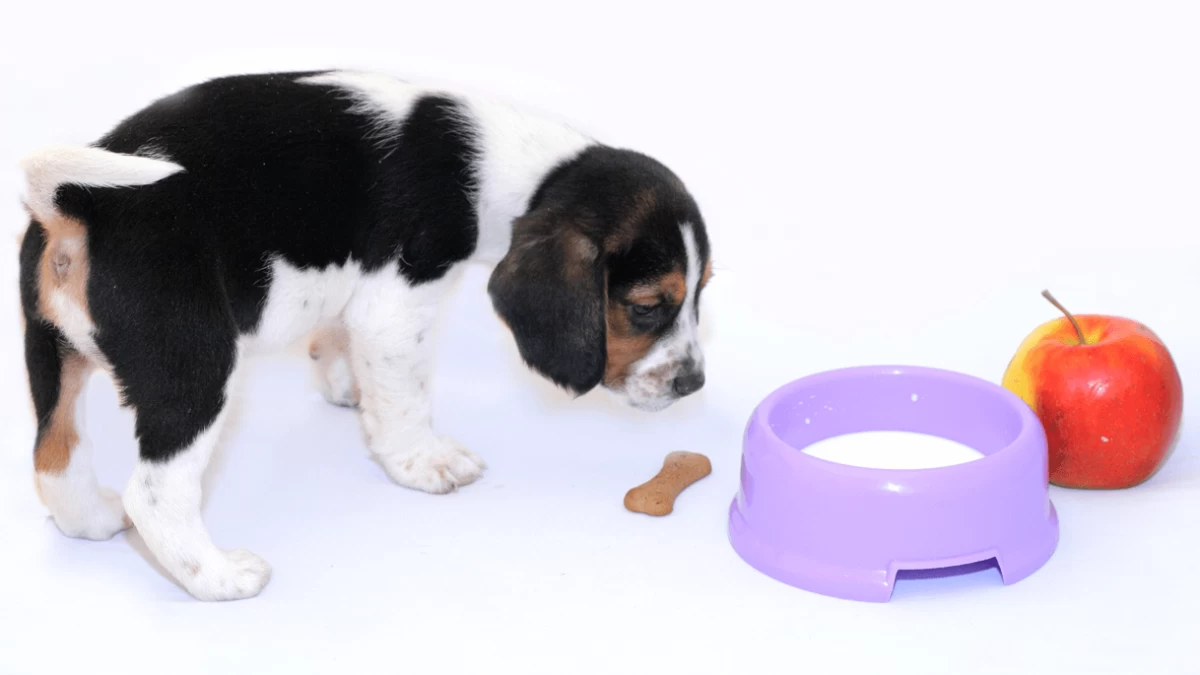Is Milk Good for Dogs?
24.02.2021.
Milk and dairy products are just some of the human foods your dog might have a taste for, but before you decide to give your dog some, find out if giving milk is safe for your dog. The truth is, your dog will want to eat anything you are eating; they don’t really care for safety - they just want to have some. You don’t have to be Santa to enjoy milk and cookies, and a combination of chocolate and milk can be seriously dangerous for your dog. Chocolate alone is toxic to them.
There are many popular dairy products we keep at home at all times - things like yogurt, butter, or cheese. All of these foods offer us plenty of benefits, but should we give some to our dogs? The answer is not that clear, and it will depend on several factors that come into play. Here is what you need to know about your dog having milk.
Check out this helpful article - Human Foods That Can Kill Your Dog.
Is milk safe for dogs?
In most cases, milk is not dangerous or toxic to dogs, but the real question is - How well will your dog tolerate milk? Cow or goat milk is mostly safe for dogs in small quantities, but keep in mind that some dogs, like humans, can be allergic or lactose intolerant. You should make sure that is not the case with your dog before deciding to give some milk to your dog.
Milk can offer us some benefits. It is packed with different vitamins, calcium, and it keeps our bones and teeth healthy and strong. For dogs to feel the same benefits, they would have to get larger quantities, which come with certain risks. Whenever it comes to talking about milk or dairy products, people seem to mention lactose intolerance. Although most of us heard about it, many of us don’t actually know what it is.

Lactose intolerance in dogs
Milk and other dairy products contain a natural sugar called lactose. For the dog’s body to successfully digest lactose, it needs an enzyme called lactase, and many mature dogs don’t have enough of these enzymes to digest it. Nursing puppies have plenty of them, and as they get older and are getting used to dry dog food, their bodies stop producing much of these enzymes.
Symptoms of lactose intolerance
You might be wondering how you could know if your dog is lactose intolerant? The truth is, in most cases, dog owners don’t know that their dogs are lactose intolerant until they give them foods that contain lactose. You could send your dog to tests, but that is entirely impractical.
There are different levels of intolerance and not all lactose intolerant dogs will experience the same reaction. Some dogs cannot take even one sip of milk, and others might digest some dairy products like ice cream or butter. Here are the most common symptoms of lactose intolerance.
- Flatulence
- Bloating
- Diarrhea
- Loose stool
- Stomach pain
- Vomiting
Plus, milk can have a pretty high-fat content, and fat alone can lead to vomiting and diarrhea. The same goes for dairy products; they can be high in fat, and if your dog consumes them for longer periods, it can lead to serious health problems. The most severe one is pancreatitis. You can read more about this problem here - Pancreatitis in dogs.
Milk allergies
A bigger problem than being lactose intolerant is allergies. While lactose intolerance can cause mild to no symptoms, food allergies can be pretty discomforting and painful. Milk is a potent allergen, and both dogs and humans can be allergic to milk. It can cause various reactions, and some can be milder, and some can be severe. The most common symptoms of milk allergies are:
- Skin irritation
- Redness
- Itching
- Pawing
- Vomiting
- Diarrhea
What is the verdict?
Giving your dog too much milk or dairy products is not the best idea. Even if your dog is not lactose intolerant, milk is still a potent allergen and is high in fat. There are far too many risks to justify giving your dog milk when the truth is, they won’t have any benefits at all. There are better and safer treats you can provide to your dog.
However, if your dog loves the taste and constantly wants you to give them a bit of milk, there is a safe way to do it.
Safe ways to give your dog milk
If you are still adamant about giving your dog milk, there are some rules you should follow. If they simply can’t adore it, and they always feel like having some, you can follow these rules to minimize the risks.
- Portion control - Make sure you keep the dosage small, and you don’t give your dog too much milk.
- Treat it like a treat - Think of giving your dog milk the same way you think about giving them treats - not too much and not too often.
- Low-fat or fat-free - We know that the higher the fat content, the tastier the milk, but your dog’s body might not be too happy about getting the extra fat. It can lead to gastrointestinal distress and pancreatitis.
- Talk to your vet - This is generally a good rule to have. Before you decide to introduce anything new to your dog’s diet, make sure you checked with your vet and asked for their advice.
World Dog Finder team







Share